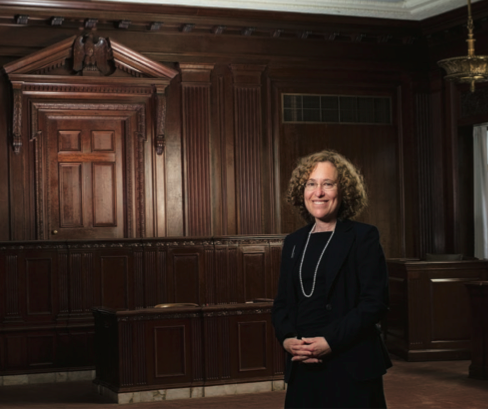[wp_blog_designer]
In the Yashanee Vaughn Case, Protecting the Right to Effective Legal Counsel: Guest Opinion
from The Oregonian, by Janet Lee Hoffman, on January 26, 2013
Click to download “In the Yashanee Vaughn case, protecting the right to effective legal counsel: Guest opinion”
The decision by Parrish Bennette’s attorneys not to reveal the location of Yashanee Vaughn’s body for more than four months has generated an enormous amount of public scorn (“Lawyers opted to withhold body site,” Jan. 18). Some have even suggested passing legislation requiring disclosure of this type of information in the future. This reaction is understandable; whenever we hear that a family has suffered a tragic and painful loss, our compassion directs us to do whatever possible to alleviate that pain and suffering. But discarding those rights enshrined in the state and federal constitutions is not the answer.
This case brings into sharp focus the tension between a family’s desire to know the fate of its loved one and the constitutional right of the accused to present a defense. Our democracy and system of justice are founded on individual protections – protections that are necessary to promote fairness. Among the most important of those protections is the right to counsel. This right is virtually meaningless unless there is a relationship of trust and confidence between the lawyer and the client. That is why Oregon law mandates that lawyers keep their clients’ secrets. It is also the lawyer’s legal, ethical and professional duty to act solely in the client’s best interest. Any other system seriously impairs the relationship between the lawyer and the client and is contrary to our carefully constructed adversarial system.
Long ago our nation adopted an adversarial justice system to avoid the excesses of government action. We rejected an oppressive system that extracted confessions from the accused and held summary trials without counsel. Our adversarial system grants the state substantial power and resources to investigate and prosecute crimes. It has powerful tools at its disposal, including search warrants, subpoenas and grand juries. The accused, in contrast, faces the might of the state clothed solely in the protections afforded to him by the law, which include the right against self-incrimination and the right to effective assistance of counsel.
I appreciate the compelling nature of the dilemma that Bennette’s lawyers faced, and I also understand the community’s response. The issue, however, is whether the defense should be required to step in to aid the prosecution out of compassion for a grieving family. If a legal system begins to erode the rights of the accused – even out of compassion – we would soon find that we no longer have a fair and functional system of justice.
Importantly, our constitutional rights protect both the innocent and the guilty against the dangers of an inquisitorial legal system that would allow the state to compel the accused to speak. To demand that a lawyer reveal client confidences that are shared for purposes of obtaining legal advice is a back door to the same unlawful result.
The advice that a lawyer provides to a client may mean that a crime goes unsolved or that a victim’s family suffers more pain, but this is the cost of our system of justice – a system that protects all individuals against unchecked excesses of government prosecution.

